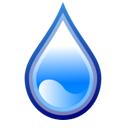Montana State Environmental Laboratory
 See below for information on a new expansion to well water testing that is free for childcare centers.
See below for information on a new expansion to well water testing that is free for childcare centers.
The Environmental Laboratory of the Montana Department of Public Health and Human Services is a full-service environmental laboratory. We provide analytical, consulting, and training services to the general public and programs of the State of Montana, as well as local and federal agencies. The mission of the Environmental Laboratory is to support Montana’s efforts to preserve a healthy environment by:
- performing efficient and high quality environmental analyses
- providing guidance and consultation regarding the requirements of environmental analyses
- promoting intergovernmental coordination and cooperation in the area of environmental testing
- providing consultation and certification services to laboratories analyzing drinking water
For more information about our Environmental Laboratory and available testing, view our brochure and our Current Fee Schedule. We also send out quarterly eLABoration newsletters with any updates or changes to our laboratory.
Public Water Supply Testing for Drinking Water
Compliance Testing
The goal of every Public Water Supply (PWS) is to provide clean, safe water to customers. To help Public Water Suppliers achieve this goal, the State Environmental Laboratory offers Drinking Water Compliance testing in accordance with EPA and State regulations. Individual tests may be requested ( Chemistry Testing Sample Submission Form), or tests may be requested as a group (listed below, under Test Forms). In addition, the laboratory reports drinking water compliance results electronically to the Montana Department of Environmental Quality (DEQ). DEQ's water website provides access to the monitoring forms and regulations.
Test Forms with Collection Instructions
PWS Microbiology/Nitrate Testing (or Nitrate only)
PWS Entry Point (EP) Testing (including Waiver Testing)
PWS Disinfection By-Product (DBP) Testing
Private Well Testing
Groundwater Contamination
A number of factors influence a well's susceptibility to contamination. The location of the well and construction are of maximum importance. The well should be located away from potential sources of contamination, such as:
- septic systems
- livestock yards or barns
- landfills or dumps
- above-ground or underground fuel storage tanks which could potentially leak
- areas where pesticides, herbicides, or fertilizers are mixed
- low-lying areas which may be subject to flooding during times of runoff
Groundwater itself may become contaminated in a number of ways. The most common way for this to happen is by contaminated surface water. Shallow aquifers can come under the influence of surface water if a stream, river, pond, or lake is near. Flooding from spring runoff, or runoff from fields which have been fertilized or have had pesticides or herbicides sprayed can also threaten groundwater. Spilled organic compounds, such as fuels, solvents, pesticides and herbicides can be carried by surface water as it percolates through the soil to an aquifer. Aquifers may be contaminated by surface water which leaches heavy metals from mines, nitrate and bacteria from septic systems or livestock yards, and various kinds of organic compounds from landfills. Abandoned but unsealed wells provide easy access for contamination carried by rodents, flood or runoff water, or from improper disposal of waste or refuse in the well.
Drinking water with these substances can cause unwanted or harmful health effects among children and staff at childcare centers, depending on the levels. Testing is the only way to know if these substances are in your well water. If your childcare center’s well water has not been tested beyond the basics, we encourage you to test your well water through DPHHS’ free well water testing program. This program is open to all prospective or licensed childcare facilities and fulfills the well water testing licensing requirement. Results are kept confidential. To request a test visit: https://mdphhs.az1.qualtrics.com/jfe/form/SV_b2zDd43iJPQkSoe
If you would like to know more about groundwater testing, please call the laboratory toll free at 1-800-821-7284, or visit the EPA website for more information about water problems and recommended testing. Potential health effects of contaminants are also listed on EPA's website, under Drinking Water Regulations.
For an explanation and summary of common contaminants we test for, review our Explanation of Tests page.
Test Forms with Collection Instructions
Private Well Testing- Chemistry: Packages are available to screen for metals, nutrients, anions, organics, and more.
Private Well Testing- Microbiology: A variety of options for only bacteria testing.
HUD/FHA Mortgage Testing: Testing required by the U.S. Department of Housing and Urban Development for a HUD/FHA loan.
If these Private Well Testing forms do not include the desired tests, other testing is available, listed by individual tests.
Sample Delivery & Contact Information
Samples may be delivered to the Montana State Environmental Laboratory via any mail carrier (USPS, etc.), our courier service (free of charge), or hand delivered to the laboratory.
Visit our courier page for directions to the laboratory. Contact the laboratory with any questions or concerns.
For clients using our courier service: Spokane Courier Service LLC will be delivering samples. The schedule of pick up times and locations is now available.


